|
|||||||||||||
Affirming Care: Unpacking Biases, Assumptions, and Minority StressParticipants will understand the relationship between minority stress and mental health, use the gender staircase to explain the causes of gender and sexual minority stress in personal and professional scenarios and evaluate the gender playground as an alternative to the binary, and apply the model to personal and professional scenarios. |
|
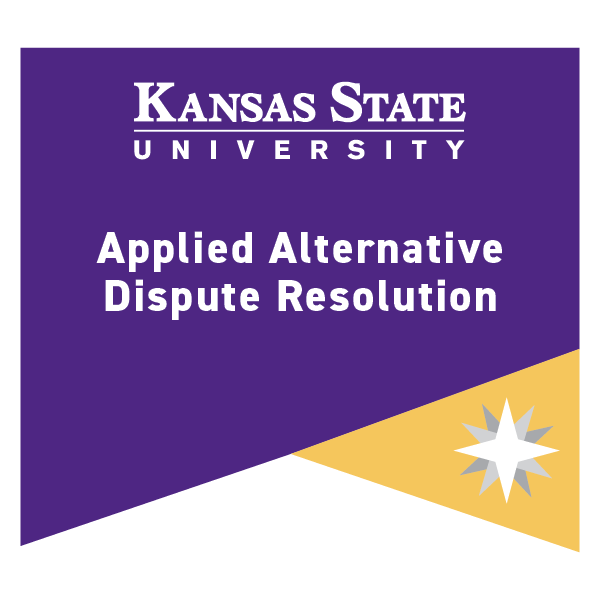 Applied Alternative Dispute ResolutionRegistration is not available at this time.This course presents conflict resolution skills, models, and procedures in a practice-based approach. Students build expertise in mediation, negotiation, and facilitation while also strengthening durable skills such as communication, problem-solving, and ethical decision-making. Completion of the course meets Kansas Office of Dispute Resolutions training requirements for core mediation approval under the Dispute Resolution Act, K.S.A. 5-509 and Rule 911. The learning experience requires approximately 45 hours and emphasizes both technical approaches and transferable skills that support effective conflict management across professional settings. Successful completion of course assignments with an overall score of 80% or higher qualifies learners to earn the microcredential and a verified digital badge. |
|
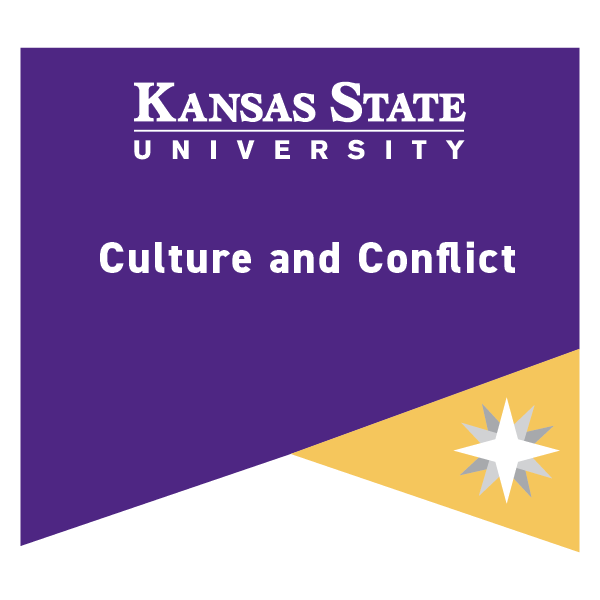 Culture and ConflictThis course explores how culture shapes the way individuals and groups perceive, experience, and resolve conflict. Learners examine cross-cultural theories, communication patterns, and the impact of variables such as gender, race, colonialism, and power on conflict processes. Emphasis is placed on developing cultural fluency, recognizing personal biases, and applying culturally sensitive strategies to conflict situations. Students build on durable skills such as critical thinking, intercultural communication, and ethical decision-making while analyzing real-world case studies and conducting a cultural interview project. The learning experience requires approximately 45 hours and prepares learners to engage in conflict across diverse cultural contexts with greater awareness and effectiveness. Successful completion of course assignments with an overall score of 80% or higher qualifies learners to earn the microcredential and a verified digital badge. |
|
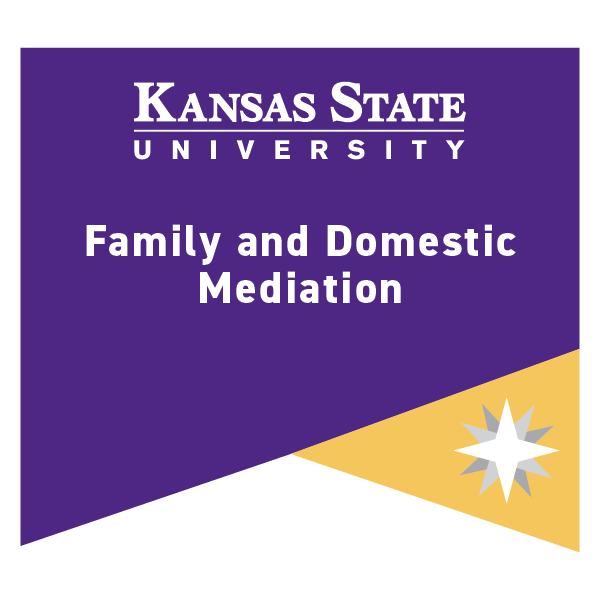 Family and Domestic MediationRegistration is not available at this time.This microcredential equips learners with an understanding of divorce mediation, a practice that began in the early 1970s. Mediation allows couples to create their divorce settlements through a cooperative, confidential, and private process that prioritizes the current and future needs of parents and children. It recognizes divorce as a family issue rather than a legal one, empowering those involved to take responsibility for solving their problems. The course covers the multidimensional aspects of divorce, including the legal, emotional, personal values, and individual needs and interests. Unlike the adversarial legal approach, which views divorce as a contest focused solely on legal issues, mediation seeks to address the holistic needs of the family. Learners will explore the role of mediation in resolving family conflicts, with specific discussions on elder mediation, parent-adolescent mediation, and the option of conducting mediation online. This microcredential provides a comprehensive overview of mediation as a constructive alternative to traditional divorce proceedings. |
|
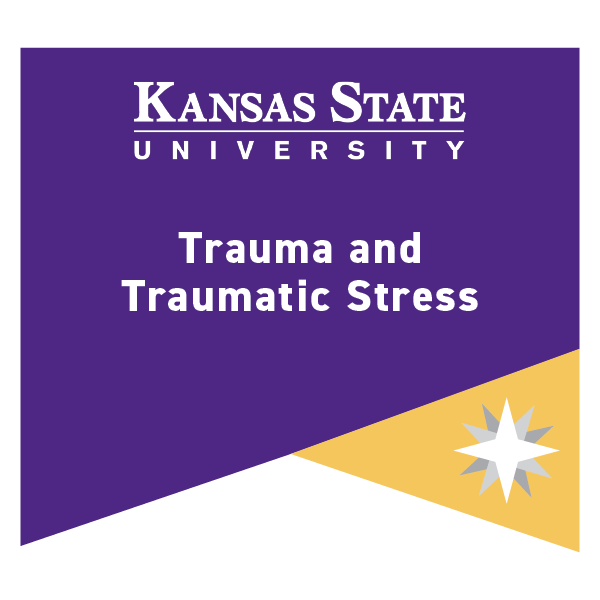 Foundations of Trauma and Traumatic StressRegistration is not available at this time.This course examines the foundations of trauma and traumatic stress, exploring how individuals, families, and communities experience, respond to, and recover from trauma. Learners analyze historical, theoretical, and diagnostic frameworks for understanding trauma, including the evolution of posttraumatic stress disorder (PTSD) and trauma-informed approaches to care. Emphasis is placed on recognizing risk and resilience factors, ethical considerations in working with trauma survivors, and the importance of self-care for helping professionals. Students strengthen durable skills in empathy, critical thinking, and reflective practice while developing practical competencies in trauma assessment, resilience-building, and intervention planning. The learning experience requires approximately 45 hours and prepares learners to apply trauma-informed principles across diverse professional and community contexts. Successful completion of course assignments with an overall score of 80% or higher qualifies learners to earn the microcredential and a verified digital badge. |
|
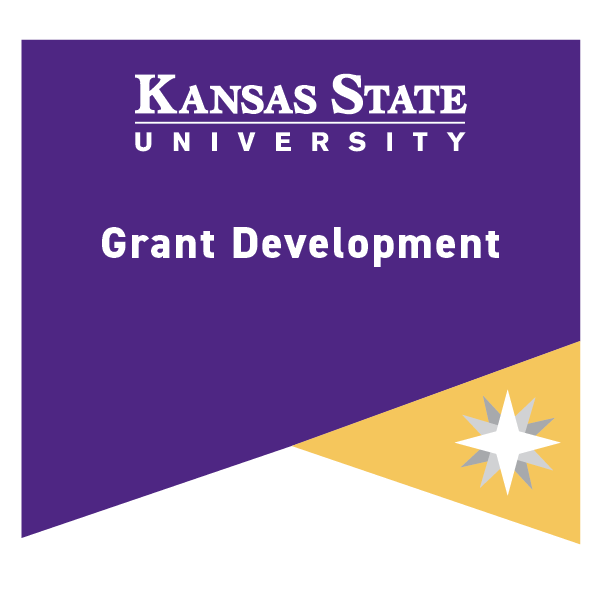 Grant Development and Management Professional CourseRegistration is not available at this time.The Grant Development and Management microcredential provides practical training in advanced grant proposal development for professionals, students, and community organizations. Learners gain hands-on experience reviewing funding announcements, writing compelling need statements, developing SMART objectives, designing project and evaluation plans, and preparing draft grant proposals. The course strengthens essential skills in project planning, program design, evaluation, budgeting, and professional communication to help participants create competitive, fundable proposals across nonprofit, education, health, and community settings. The learning experience requires approximately 45 hours and integrates both technical grant development methods and durable skills essential for effective proposal writing across professional contexts. Successful completion of required assignments with instructor feedback and an overall score of 75% or higher qualifies learners to earn the microcredential and a verified digital badge. |
|
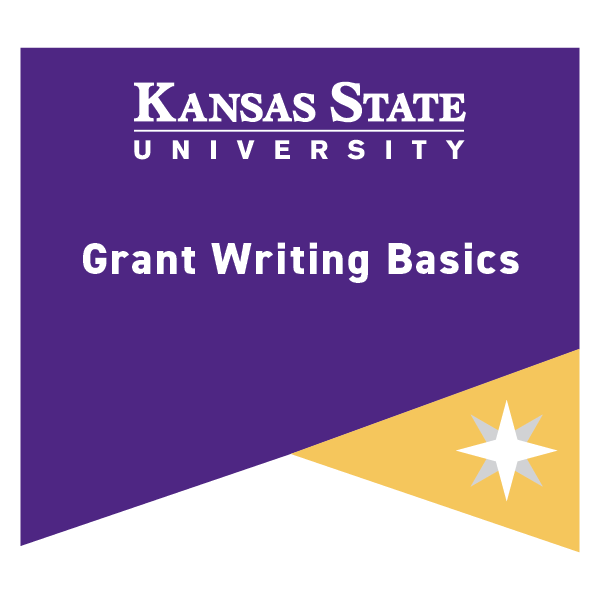 Grant Writing BasicsGrant Writing Basics is an applied grant writing course for new and experienced practitioners who want to strengthen their ability to develop competitive grant proposals. Participants learn how to identify grant opportunities, use data to document community needs, write clear problem statements, and build strong outcomes, activities, evaluation plans, and budgets. The course emphasizes practical grant writing skills alongside durable strengths in professional communication, critical thinking, and collaboration.The learning experience requires approximately 15 hours and includes instructional modules, small-group interaction, and hands-on writing practice. Successful completion of course assignments with an overall score of 75% or higher qualifies learners to earn the microcredential and a verified digital badge. |
|
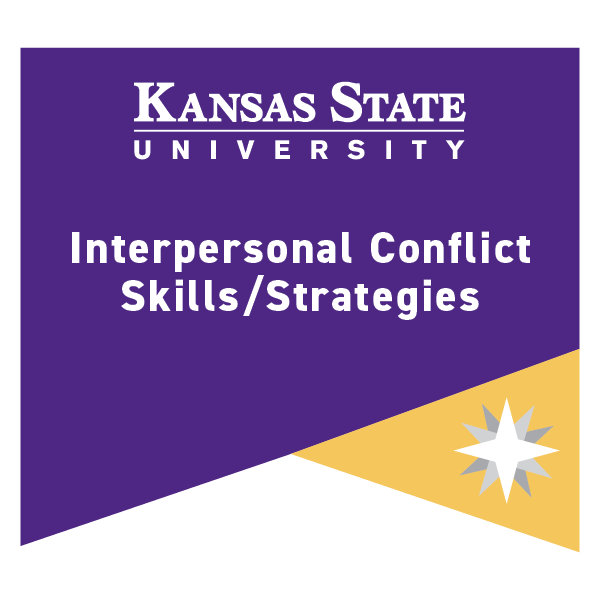 Interpersonal Conflict Skills and StrategiesRegistration is not available at this time.This course develops communication theories and interpersonal skills essential for conflict resolution. Students strengthen durable skills such as collaboration, problem-solving, and emotional intelligence while learning to analyze, manage, and de-escalate interpersonal conflict. Content emphasizes ethical decision-making and the influence of culture, power, and emotion on communication. The learning experience requires approximately 45 hours and prepares learners to apply conflict management strategies across personal and professional settings. Successful completion of course assignments with an overall score of 80% or higher qualifies learners to earn the microcredential and a verified digital badge. |
|
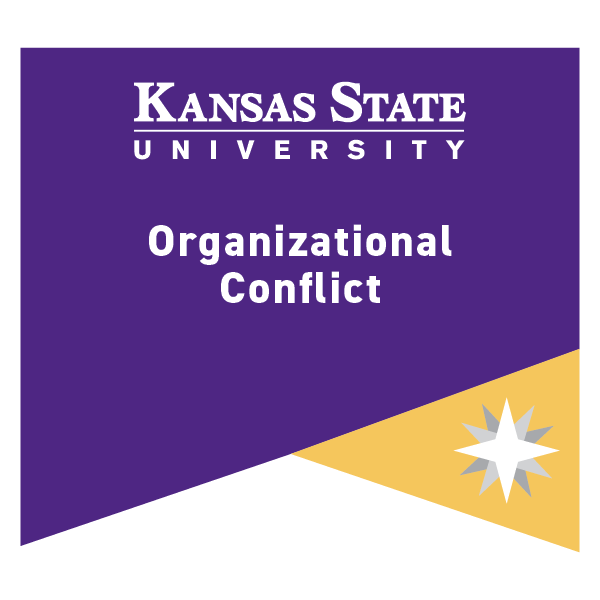 Organizational ConflictRegistration is not available at this time.This course is designed to provide students with an overview of the theories, methods, research, and practice issues involved in identifying and assessing sources of conflict, and designing and implementing intervention plans in organizations and groups experiencing conflict. The organizations explored will include businesses, non-profit organizations, governmental agencies, municipalities, and community groups. Students will learn about organizations, organizational development, and organizational psychology. Causes and consequences of conflict within organizations, dispute systems assessment and design, and how conflict resolution professionals work as interveners and agents of change will be the primary focus of the course. It is expected that this course will prepare students to: identify their own professional consultation strengths and interests, assess conflict, and build and evaluate dispute resolution systems. |
|
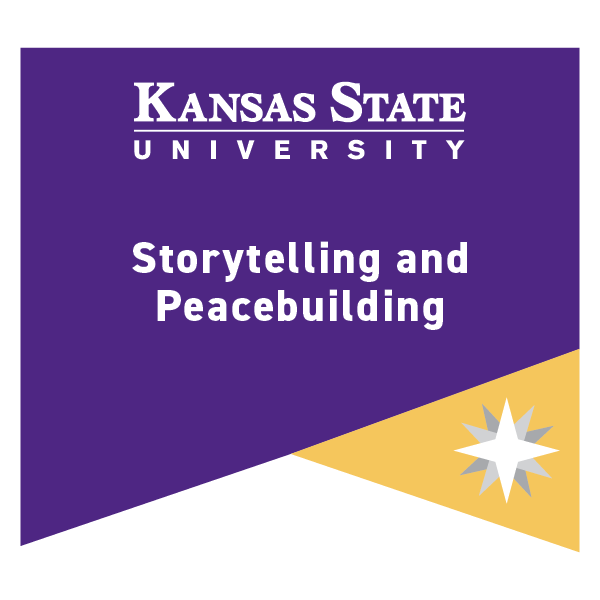 Storytelling and PeacebuildingRegistration is not available at this time.This course explores storytelling as a tool for conflict resolution and peacebuilding. Learners analyze how narratives shape identity, power, and meaning, and examine storytelling methods such as photovoice, digital media, music, and theatre. Emphasis is placed on applying storytelling strategies to address trauma, foster solidarity, and promote reconciliation across diverse contexts. Students build on durable skills in reflection, intercultural communication, and ethical decision-making while developing applied projects that integrate theory and practice. The learning experience requires approximately 45 hours and prepares learners to use storytelling as a means of conflict transformation. Successful completion of course assignments with an overall score of 80% or higher qualifies learners to earn the microcredential and a verified digital badge. |
|
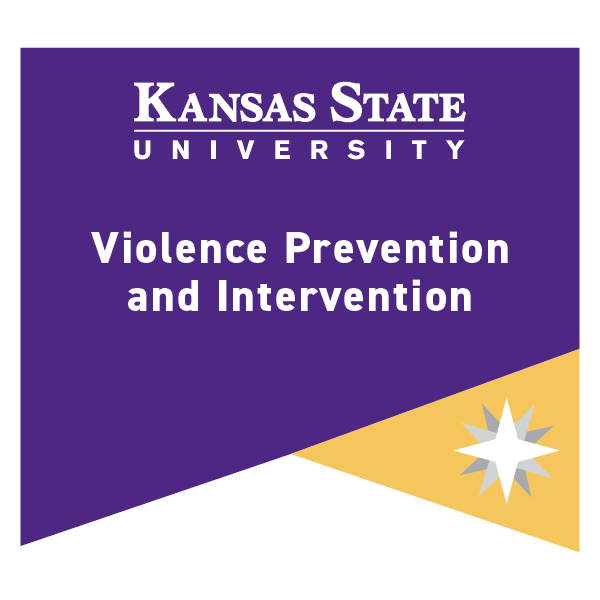 Violence Prevention and InterventionThis course explores the causes, consequences, and prevention of violence across individual, family, group, and societal levels. Learners analyze theories of aggression and nonviolence, examine human rights frameworks, and apply evidence-based strategies for intervention and prevention. Emphasis is placed on fostering empathy, ethical decision-making, and trauma-informed approaches that promote nonviolent social change. Students strengthen durable skills in critical thinking, intercultural communication, and emotional intelligence while developing practical competencies in conflict diagnosis, violence assessment, and intervention planning. The learning experience requires approximately 45 hours and prepares learners to apply violence prevention principles in professional, community, and organizational settings. Successful completion of course assignments with an overall score of 80% or higher qualifies learners to earn the microcredential and a verified digital badge. |
|

 Cart (0)
Cart (0)